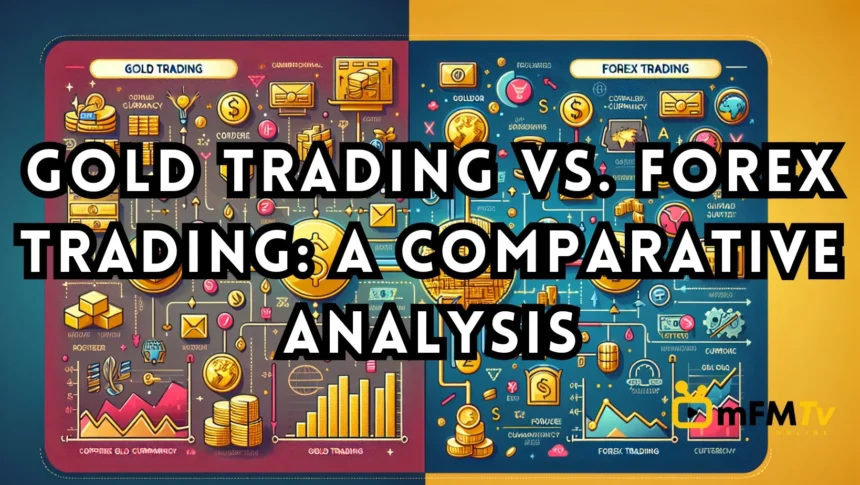Investing in financial markets offers various avenues, with gold trading and forex trading being two of the most popular options. Both present unique opportunities and challenges, attracting different types of traders based on their preferences and goals. This article will delve into the key differences between gold trading and forex trading, helping you determine which might be the better fit for your investment strategy.
Understanding Gold Trading
Gold trading involves buying and selling gold to profit from its price movements. Investors can trade physical gold, gold futures, gold options, or exchange-traded funds (ETFs) that track the price of gold.
Pros of Gold Trading:
- Safe-Haven Asset: Gold is often considered a safe-haven asset, retaining its value during economic uncertainties.
- Inflation Hedge: Historically, gold has been a good hedge against inflation.
- Tangible Asset: Physical gold offers the security of a tangible asset that can be stored and insured.
Cons of Gold Trading:
- Storage and Security: Physical gold requires secure storage, which can be costly.
- Lower Liquidity: Compared to forex, gold markets can have lower liquidity, leading to potential issues in executing large trades.
- Price Volatility: Gold prices can be volatile, influenced by geopolitical events, currency fluctuations, and market speculation.
Understanding Forex Trading
Forex trading, or foreign exchange trading, involves buying and selling currencies to profit from changes in exchange rates. The forex market is the largest and most liquid financial market globally, operating 24 hours a day.
Pros of Forex Trading:
- High Liquidity: The forex market’s high liquidity ensures that trades can be executed quickly and efficiently.
- 24/5 Market: Forex trading occurs 24 hours a day, five days a week, providing flexibility for traders worldwide.
- Leverage: Forex brokers often offer high leverage, allowing traders to control larger positions with a smaller initial investment.
Cons of Forex Trading:
- High Risk: The use of leverage can amplify both gains and losses, making forex trading highly risky.
- Complex Market: The forex market is influenced by various factors, including economic indicators, political events, and central bank policies, making it complex to analyze.
- Potential for Scams: Due to its decentralized nature, the forex market is susceptible to fraud and scams, especially for inexperienced traders.
Key Differences Between Gold Trading and Forex Trading
1. Market Nature:
- Gold trading focuses on a single commodity, whereas forex trading involves multiple currency pairs.
- Forex trading offers higher liquidity compared to the gold market, making it easier to enter and exit trades.
2. Influencing Factors:
- Gold prices are primarily influenced by supply and demand, geopolitical stability, and macroeconomic factors.
- Forex prices are affected by economic data, interest rates, political stability, and market sentiment.
3. Trading Hours:
- The forex market operates 24/5, allowing for continuous trading across different time zones.
- Gold trading hours depend on the specific market or exchange but generally follow standard market hours.
4. Leverage and Risk:
- Forex trading typically offers higher leverage, increasing both potential profits and risks.
- Gold trading usually involves lower leverage, resulting in lower risk but also potentially lower returns.
5. Investment Objectives:
- Investors often turn to gold trading for long-term wealth preservation and as a hedge against economic downturns.
- Forex trading is more suitable for those looking for short-term gains through active trading and market speculation.
Conclusion
Choosing between gold trading and forex trading depends on your investment goals, risk tolerance, and market knowledge. Gold trading offers stability and long-term value, making it a preferred choice for conservative investors. On the other hand, forex trading provides high liquidity and the potential for significant short-term profits, attracting more aggressive traders.
By understanding the nuances of each market, you can make informed decisions and tailor your trading strategy to align with your financial objectives. Whether you choose gold trading, forex trading, or a combination of both, staying informed and adaptable will be key to your success in the dynamic world of financial markets.




